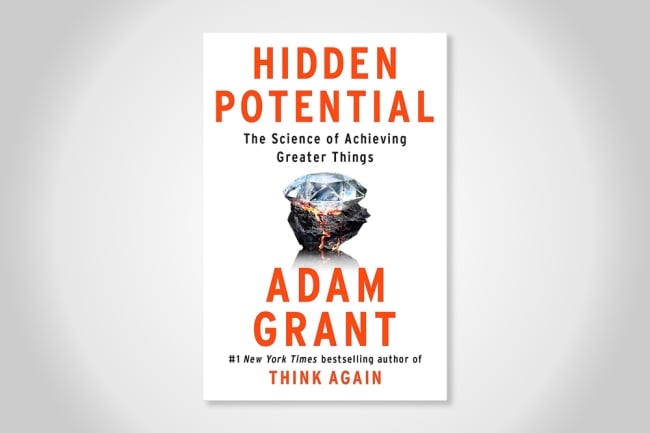You have /5 articles left.
Sign up for a free account or log in.

Viking
Hidden Potential: The Science of Achieving Greater Things by Adam Grant
Published in October 2023
More accurately, I love Adam Grant’s audiobooks. He narrates his books, and his voice perfectly complements his prose.
Spend the seven or eight hours with Adam to listen to one of his books, and you will come out the other end of the experience as a more thoughtful and more effective human.
Grant’s latest book, Hidden Potential, continues the streak.
You want your kids, colleagues and students to read this book. Hidden Potential will help every reader redefine success away from some imagined or comparative destination and toward how far one has traveled.
The big message in Hidden Potential, backed up by research and told through stories and data, is that we (individuals and organizations) tend to think about accomplishments all wrong. We give too much credit to innate ability and too little emphasis to learning.
As Grant points out (with an observation that will ring true to every educator), meaningful learning is almost always painful. Mastery requires not talent but a willingness to lean into discomfort.
This does not mean that learning (or teaching) needs to be boring. There is a sort of freedom to understand that we will be getting it wrong for most of any learning journey. As we will screw most things up as we go, it makes more sense to do so in a framework of play and kindness.
Hidden Potential is the perfect book to give to a newly minted academic preparing to teach their first class. Grant provides ample research evidence, made memorable through individual stories (including his own), that teaching is among the most complex of human endeavors. It is because teaching is so hard that the teacher will learn so much.
How might a professor teach better? Grant recommends various strategies, including thinking of teaching as learning, keeping the class interesting and soliciting frequent, specific feedback on areas of potential improvement. If you can avoid the trap of perfectionism and be willing to be a sponge for information, then your teaching (and everything else) should also improve over time.
While the advice in Hidden Potential is helpful and actionable, I have some questions for Grant about the book. I’d first ask him his thoughts on where his research intersects and contradicts the writing on strengths. Over the years, I’ve been highly influenced by the idea that organizations, educators and parents should focus on playing to strengths above correcting for weaknesses. The themes in Hidden Potential can be seen as an argument to do just the opposite.
My second area of question is the relationship between the conclusions of Hidden Potential and the realities of societal privilege. I’d like to hear what Grant thinks about the charge that elite educational institutions (such as where he and I are employed) serve to deepen structural inequalities.
Grant’s interest is in having his teaching, research and writing contribute to his students’ and readers’ well-being and success. By focusing his unit of analysis primarily on the individual, however, I worry that he is losing the opportunity to analyze and explain the role of the organization.
Again, I’d hope that Grant would be willing to stay close to home and offer critical analysis and specific recommendations for how universities (including elites) can evolve their structures, policies and cultures toward a more ambitious set of society-level goals.
For Grant’s next book, I would like to do some friendly lobbying to shift focus from the individual to the organization. And if Grant is reading this review, I want to make a plug for an Adam Grant book about higher education. Now, that would be awesome.
What are you reading?




